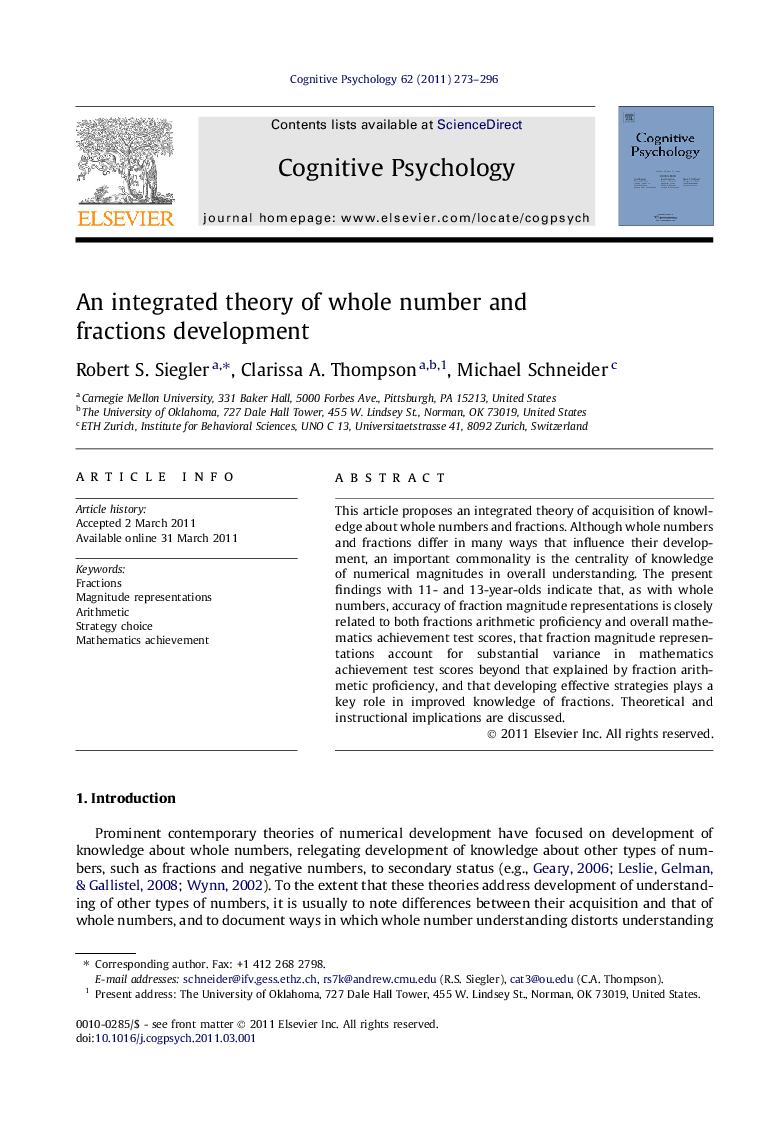| Article ID | Journal | Published Year | Pages | File Type |
|---|---|---|---|---|
| 916937 | Cognitive Psychology | 2011 | 24 Pages |
This article proposes an integrated theory of acquisition of knowledge about whole numbers and fractions. Although whole numbers and fractions differ in many ways that influence their development, an important commonality is the centrality of knowledge of numerical magnitudes in overall understanding. The present findings with 11- and 13-year-olds indicate that, as with whole numbers, accuracy of fraction magnitude representations is closely related to both fractions arithmetic proficiency and overall mathematics achievement test scores, that fraction magnitude representations account for substantial variance in mathematics achievement test scores beyond that explained by fraction arithmetic proficiency, and that developing effective strategies plays a key role in improved knowledge of fractions. Theoretical and instructional implications are discussed.
► We propose an integrated theory of knowledge of whole numbers and fractions. ► Accurate magnitude representations are crucial to whole number and fraction learning. ► Fraction magnitude representations correlate highly with fractions arithmetic. ► Fraction magnitude representations correlate highly with math achievement test scores.
